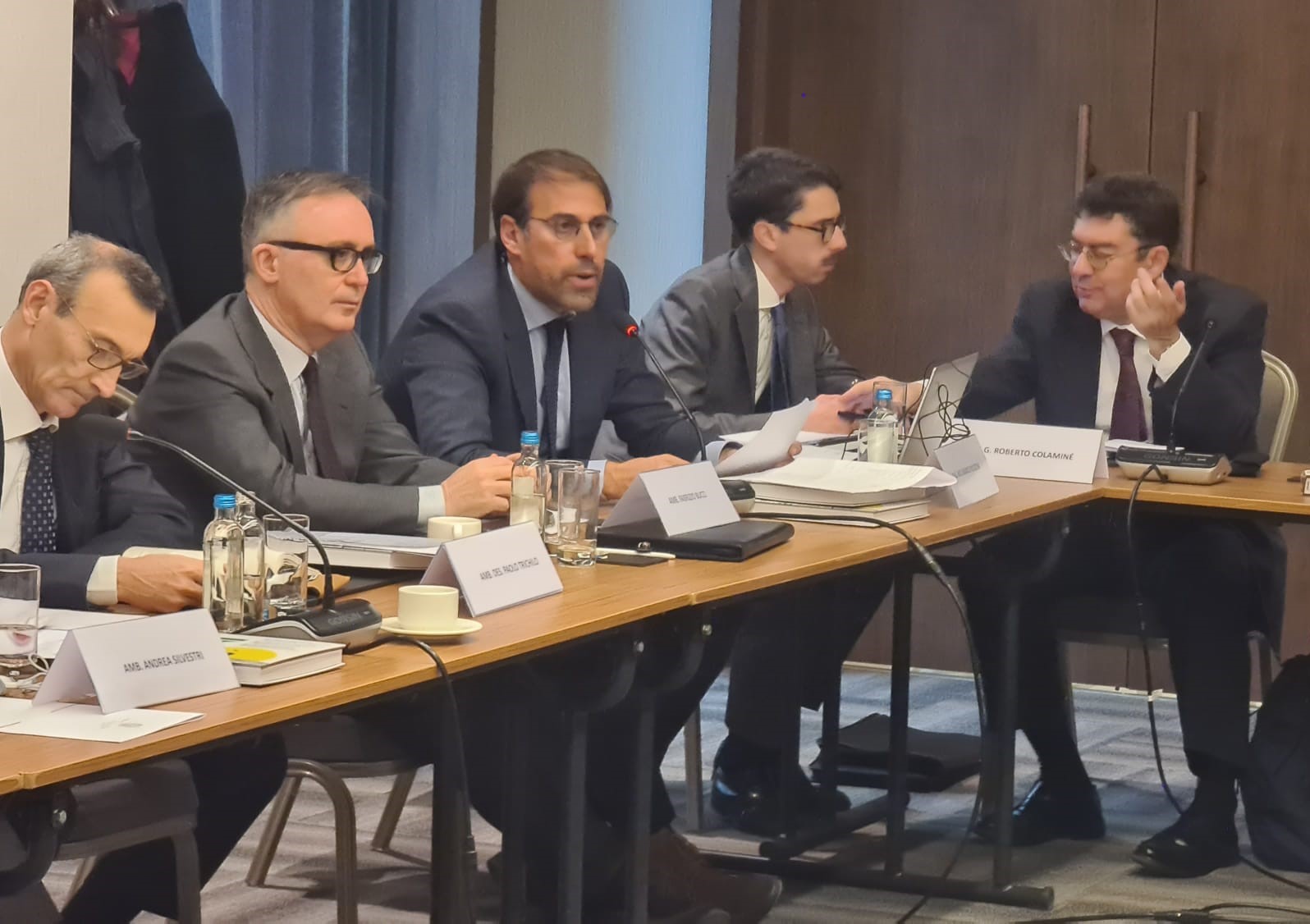On February 20th, AICS Director Marco Riccardo Rusconi, with the Director of the Tirana Office Stefania Vizzaccaro and the Deputy Director Letizia Fischioni, joined the Meeting of the Ambassadors of Italy in the Adriatic-Balkan area in Skopje, North Macedonia. On behalf of the DGCS – MAECI, there were also the Deputy Director Roberto Colamine’ and the Deputy of Office V, Dr. Filippo Romanengo.
During the conference, Director Rusconi recalled how the commitment of the Italian Cooperation in the Western Balkans, started in the early ’90s, is deeply rooted in national history. Thanks to the geographical proximity, Italy has been a privileged interlocutor of the countries in the area in order to consolidate relations between the two shores of the Adriatic. The Director underlined the importance of the current role of the Italian Cooperation in the area in the framework of the effort for the integration of the region into the European Union started in 2014, with activities aimed at encouraging dialogue and building bridges and giving demonstrations concrete examples of how local communities together are stronger and can achieve higher levels of well-being and development and also strengthening the prospects for peace.
From this perspective, the regional approach of interventions is therefore crucial and this is the reason the AICS Tirana Headquarters, currently responsible for cooperation interventions in 5 of the 6 countries of the Western Balkans (Albania, Bosnia and Herzegovina, Kosovo, Macedonia of the North and Serbia), has firstly implemented twin initiatives over the past few years in various countries, such as NaturAlbania, NaturBosnia and NaturKosovo, and then real regional initiatives such as Culture & Creativity 4 Western Balkans, drawing on European funds. In the next future – within the framework of the 2024 programming being defined – this approach will be further strengthened with further regional interventions focused on three long-term objectives, such as technical-professional training aimed at concrete employment opportunities in the agri-food and tourism sectors, the promotion of digitalisation also in traditional fields such as agriculture and rural development and the promotion of inclusive processes of institutional strengthening in various fields including disaster risk reduction, in which Italy can express internationally recognized expertise through the involvement of actors from the Italian system.
The regional interventions, concluded Director Rusconi, represent an added value for multiple reasons: these are tools for promoting dialogue and collaboration between experts and professionals in the key sectors of development which promote a better understanding of the challenges and opportunities of the area, with a multiplier effect on the results and effectiveness of the actions. In addition to the technical results, they also create the conditions to facilitate dialogue at the political level, strengthening the reconciliation process in the area.
